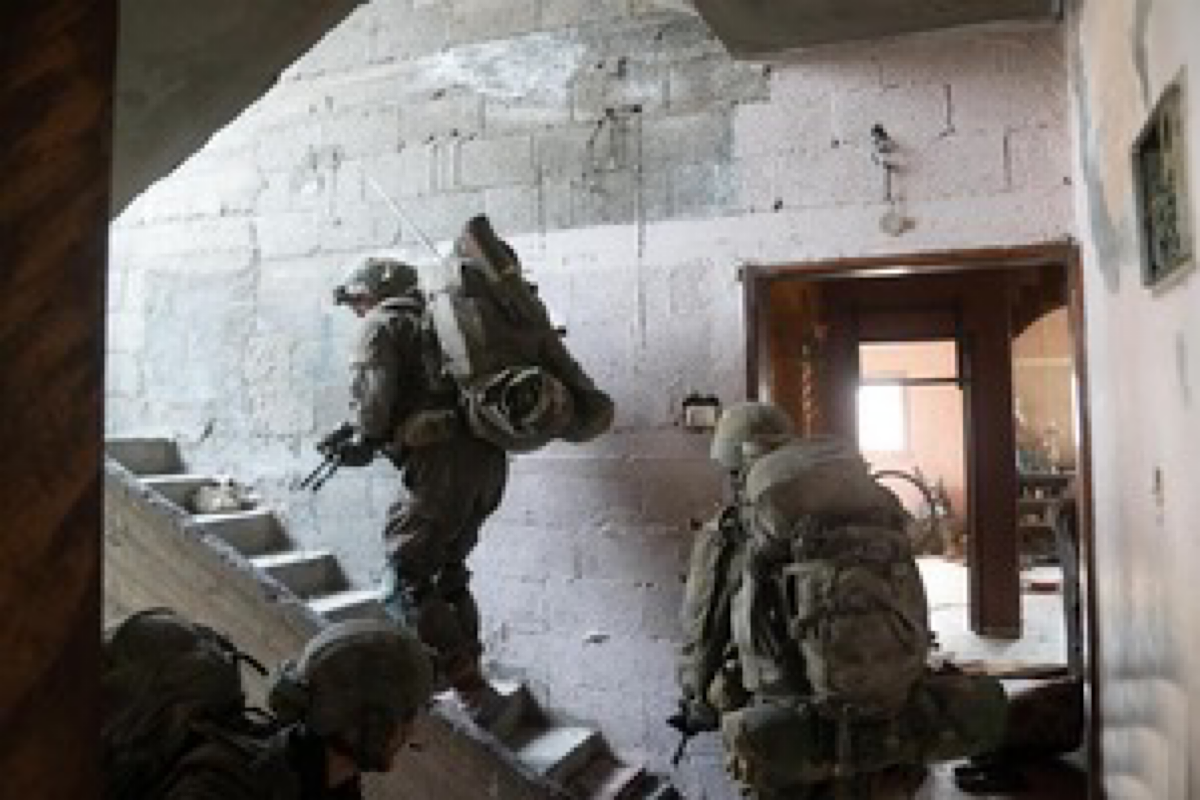Israel has declared the expansion of its ground offensive in the central Gaza Strip, as the United Nations warned that the escalation of attacks is exacerbating a “catastrophic” humanitarian crisis in the war-ravaged Palestinian enclave.
Israel previously urged the residents of Gaza to move from the northern region to the central and southern regions, which it claimed as “safe zones”. However, the Israeli forces later expanded their strikes across the strip, including the central and southern parts, Xinhua news agency reported.
Advertisement
In a statement on Tuesday, UN Human Rights Office’s spokesperson Seif Magango reported that more than 50 strikes occurred in central Gaza on December 24-25, targeting the refugee camps of Bureij, Nuseirat, and Maghazi, where two strikes hit seven residential buildings, killing at least 86 people.
“An unknown number of people are still believed to be trapped under the rubble,” Magango said.
The escalated Israeli bombardment, said Magango, is “deepening an already catastrophic humanitarian situation,” with all roads connecting the three camps destroyed, hindering the delivery of relief aid. Shelters and hospitals, operating at a minimal capacity, are grappling with critical overcrowding and limited resources.
Palestinian health authorities have reported that approximately 21,000 people, predominantly children, women, and the elderly, were killed during the 81-day conflict, with thousands more missing and presumed to be buried under the rubble. A majority of the 2.3 million population has been displaced, and the UN reports widespread hunger.
Meanwhile, an Israeli military spokesperson told reporters that the Israel Defense Forces (IDF) believes that “thousands” of Hamas militants are located in the refugee camps of central Gaza.
IDF Chief of the General Staff Herzi Halevi said in an address to soldiers that the attacks will now concentrate on central and southern Gaza.
According to Halevi, the military “is close to completing the dismantling of Hamas’ battalions in the northern Gaza Strip.”
He said that the military killed “many” militants and Hamas commanders, some surrendered to the Israeli forces and “hundreds” were taken prisoner. However, “it cannot be said that we killed them all. It seems likely that we will still encounter fighters in this area.”
He acknowledged that the ongoing attack has exacted a “heavy and painful toll” on soldiers’ lives, with official figures indicating that the number of Israeli troops killed has reached 161 since the beginning of Israel’s ground invasion.
The Israeli objectives — eliminating Hamas and bringing back home about 129 hostages who are still held in Gaza — “are not simple to achieve,” Halevi noted, saying that the fight would continue “for many more months.”
Addressing the parliament Security and Foreign Affairs Committee, Israeli Defense Minister Yoav Gallant also emphasized that Israel faces “a long fight”.
He said that since Hamas launched its surprise attack on October 7, Israel has been “in a multi-front war. We are being attacked from seven different arenas: Gaza, Lebanon, Syria, Judea and Samaria (the West Bank), Iraq, Yemen, and Iran”.
“Israel has retaliated in six of these arenas,” Gallant said. “Anyone who acts against us is a potential target, there is no immunity.”















